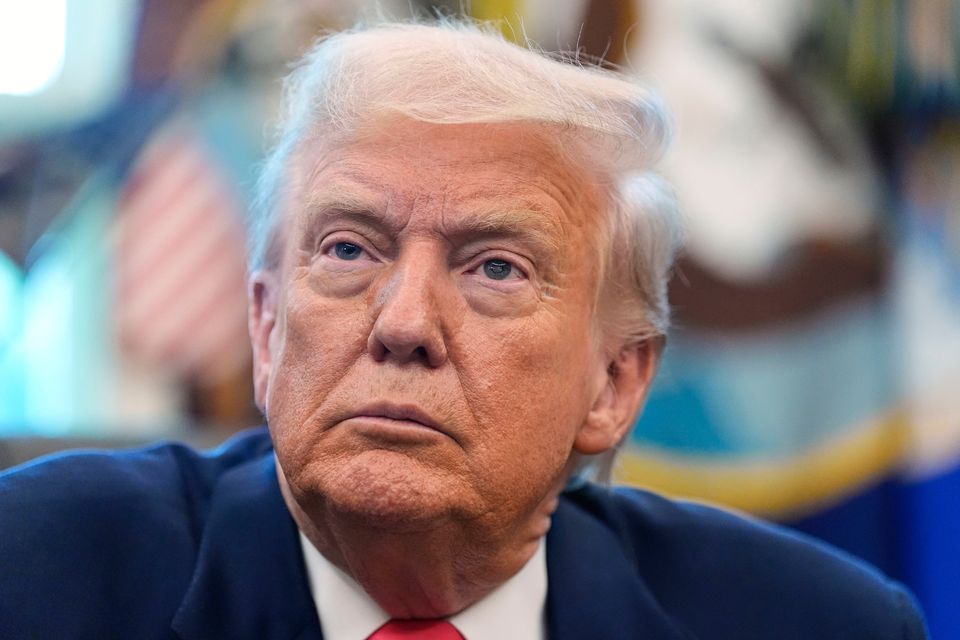World
Trump Meets Putin in Alaska: A Potential Turning Point for Ukraine

US President Donald Trump is set to meet with Russian President Vladimir Putin in Anchorage, Alaska, on March 15, 2024. This meeting comes at a time of heightened tensions surrounding Russia’s ongoing war in Ukraine and could significantly impact the geopolitical landscape. Observers are keen to see which version of Trump will emerge: the conciliatory leader from previous encounters or a more assertive figure frustrated with Russia’s actions.
The Stakes for Ukraine and Europe
During their last meeting in Helsinki in 2018, Trump attracted criticism from allies after siding with Putin over US intelligence agencies regarding election interference. Now, ahead of the Alaska summit, the atmosphere has shifted. Trump has expressed impatience with Russia’s reluctance to negotiate an end to the conflict in Ukraine, especially following missile strikes on Ukrainian cities.
The implications of this meeting are substantial. European leaders are increasingly concerned that if Russia manages to consolidate control over parts of Ukraine, it may embolden further aggression toward NATO allies, including Poland, Estonia, and Latvia. For Ukraine, which has been facing significant military challenges for more than three years, the outcome of these negotiations is critical.
While Trump has adopted a tougher rhetoric toward Putin in recent months, his history of seeking to foster a positive relationship with the Russian leader raises questions about the potential outcomes. Notably, when Russia launched its invasion of Ukraine in 2022, Trump refrained from direct criticism of Putin, a stance that drew scrutiny from many.
Dan Fried, a former US diplomat currently associated with the Atlantic Council, voiced concerns about Trump’s approach. “It’s a reasonable concern to think that Trump will be bamboozled by Putin and cut a terrible deal at Ukraine’s expense,” he stated. However, he also noted that there might be a chance for a more robust US position if the administration recognizes Putin’s tactics.
The Context of the Meeting
The White House has attempted to manage expectations ahead of the summit. Press Secretary Karoline Leavitt characterized the meeting as a “listening exercise.” Trump himself suggested the possibility of a follow-up meeting that might also include Ukrainian President Volodymyr Zelensky, contingent on the success of the Alaska discussions.
Despite these diplomatic overtures, Russia has not indicated any willingness to make significant concessions. Zelensky has expressed a desire for a ceasefire and security guarantees before any negotiations proceed, reflecting the apprehension within Ukraine regarding Trump’s intentions.
Trump’s past efforts to cultivate a rapport with Putin have faced challenges. During his previous administration, he made statements expressing sympathy for Putin’s isolation and claimed he could resolve the Ukraine conflict swiftly. This approach has raised alarms among Ukraine’s supporters, particularly as some Trump aides echoed Russian narratives, which has dismayed Ukraine’s allies.
The ongoing violence in Ukraine has prompted Trump to adopt a more confrontational stance recently. He has committed to sending additional arms to Ukraine, with European nations covering the costs, while also threatening new sanctions against Russia. On March 13, Trump warned of “severe consequences” if Russia fails to engage constructively in negotiations.
For Zelensky, the outcome of the talks in Alaska presents a moment of anxiety, as he anticipates the potential ramifications for Ukraine’s future. Trump’s desire for a high-profile diplomatic achievement may complicate matters further, especially as he campaigns for recognition, such as the Nobel Peace Prize, citing his past diplomatic efforts.
Recent comments from Trump regarding the need for land swaps between Russia and Ukraine have drawn backlash from both Ukrainian and European leaders. Given that Russia currently occupies Crimea and significant portions of eastern Ukraine, the feasibility of such agreements remains uncertain.
John Bolton, a former national security adviser to Trump and now a vocal critic, expressed concern about the potential influence of Putin on Trump. “When you’re one of the world’s hard men like Vladimir Putin, this is not a matter of emotion; this is a matter of cold calculation. Trump doesn’t get that point,” Bolton remarked.
As the world watches closely, the Anchorage summit presents a pivotal opportunity for both leaders, with significant implications for Ukraine and the broader international community. The outcome remains uncertain, and the stakes have never been higher for those affected by the ongoing conflict.
-

 Top Stories3 months ago
Top Stories3 months agoTributes Surge for 9-Year-Old Leon Briody After Cancer Battle
-

 Entertainment4 months ago
Entertainment4 months agoAimee Osbourne Joins Family for Emotional Tribute to Ozzy
-

 Politics4 months ago
Politics4 months agoDanny Healy-Rae Considers Complaint After Altercation with Garda
-

 Top Stories4 months ago
Top Stories4 months agoIreland Enjoys Summer Heat as Hurricane Erin Approaches Atlantic
-

 World5 months ago
World5 months agoHawaii Commemorates 80 Years Since Hiroshima Bombing with Ceremony
-

 Top Stories3 months ago
Top Stories3 months agoNewcastle West Woman Patricia Foley Found Safe After Urgent Search
-

 Top Stories5 months ago
Top Stories5 months agoFianna Fáil TDs Urgently Consider Maire Geoghegan-Quinn for Presidency
-

 World5 months ago
World5 months agoCouple Convicted of Murdering Two-Year-Old Grandson in Wales
-

 World5 months ago
World5 months agoGaza Aid Distribution Tragedy: 20 Killed Amid Ongoing Violence
-

 World5 months ago
World5 months agoAristocrat Constance Marten and Partner Convicted of Infant Murder
-

 Top Stories4 months ago
Top Stories4 months agoClimbing Errigal: A Must-Do Summer Adventure in Donegal
-

 Top Stories4 months ago
Top Stories4 months agoHike Donegal’s Errigal Mountain NOW for Unforgettable Summer Views









